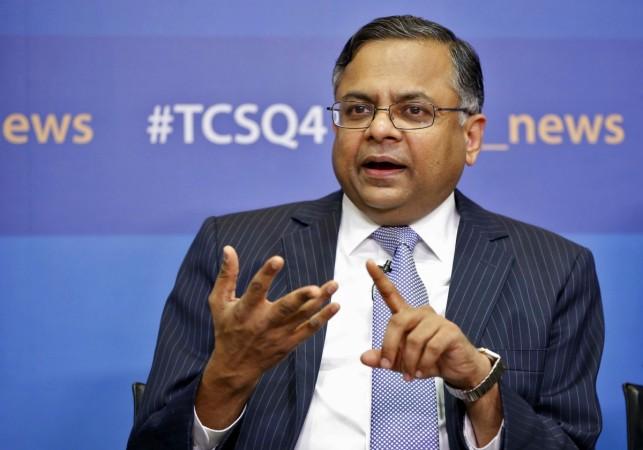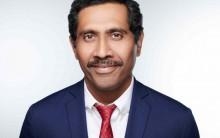
N Chandrasekaran, who was CEO and MD of Tata Consultancy Services (TCS) till February this year, earned Rs 30 crore in 2016-17, around 83 percent (Rs 25 crore) of which was commission, according to the 2017 annual report of the company.
The rest came in the form of basic salary (Rs 2.4 crore) and perquisites (Rs 2.7 crore), the Economic Times reported.
The overall compensation for the 11-month period marked a fall of 16.6 percent Chandrasekaran received for 2015-16 (Rs 36 crore, including Rs 10 crore as one-time bonus). It may be recalled that his remuneration triggered a row during the company's annual general meeting last year when shareholders questioned his compensation that was almost 460 times the median salary paid by the company.
After the unceremonious exit of Cyrus Mistry, the then chairman of Tata Sons, last October, the conglomerate appointed Chandrasekaran as the chief of the Group's holding company in February this year. He was replaced by Rajesh Gopinath for a five-year term with effect from February 21, 2017.
While Chandrasekaran's salary as chairman of Tata Sons is yet to be revealed, ET had earlier reported that he would be paid about Rs 4.8 crore as basic salary per annum, plus a variable payout of about 200 percent, depending on the company's performance.
Meanwhile, amid all the reports of layoffs in the IT industry, Chandrasekaran said the situation was not as bad as everyone perceived it to be. The sector is "alive and kicking," Chandrasekaran wrote in a column for the publication, saying the only change that the industry has been undergoing was the nature of technology. "Consumers and business are now embedded in technology. And more technology means more jobs. Not less," he wrote.
The same has been discussed at length by various experts before. Numerous companies have been embracing technology in the form of automation of various processes. However, many believe that this is leading to lesser number of people being hired each year.
"With automation, the number of people we are hiring in the past will not be the same. It will slow down a little bit. We are also looking at hiring very differential kind of people," the Indian Express quoted Krishnamurthy Shankar, executive vice-president and group head, human resource development, Infosys, as saying.
Pankaj Bansal, co-founder and chief executive officer of PeopleStrong, noted that the job cuts due to automation may not show a drastic impact right away, but it will be visible by around 2020. "The change has started, with companies introducing bots for customer service, managing warehouses, etc.," he told Mint.

















